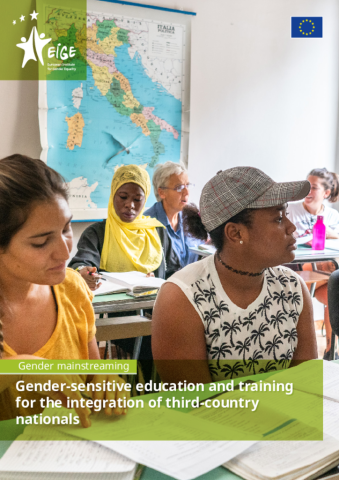This paper looks at how gender equality and women’s empowerment are considered in the policies and actions supporting the integration of third-country nationals through education and training. Embedding a gender equality perspective in all policy sectors, including in the integration of third-country nationals, education and training, is a legal and political obligation for the EU institutions and Member States. Gender-sensitive policy-making can contribute to the development of policies and measures that respond to the distinct needs and interests of diverse groups of women and men third-country nationals. It can also serve to further advance gender equality in the EU.
The paper is based on a small-scale study and draws on: 1) a review of EU policies on migrant integration and education; and 2) a review of five Member States’ (France, Germany, Greece, Italy, Sweden) policy frameworks and gender-specific actions. The findings show that the EU and its Member States can - and should - do much more and much better on the gender equality and women’s rights aspects of integration and education of third-country nationals.
